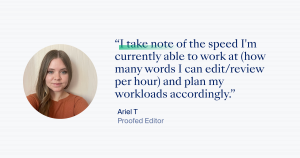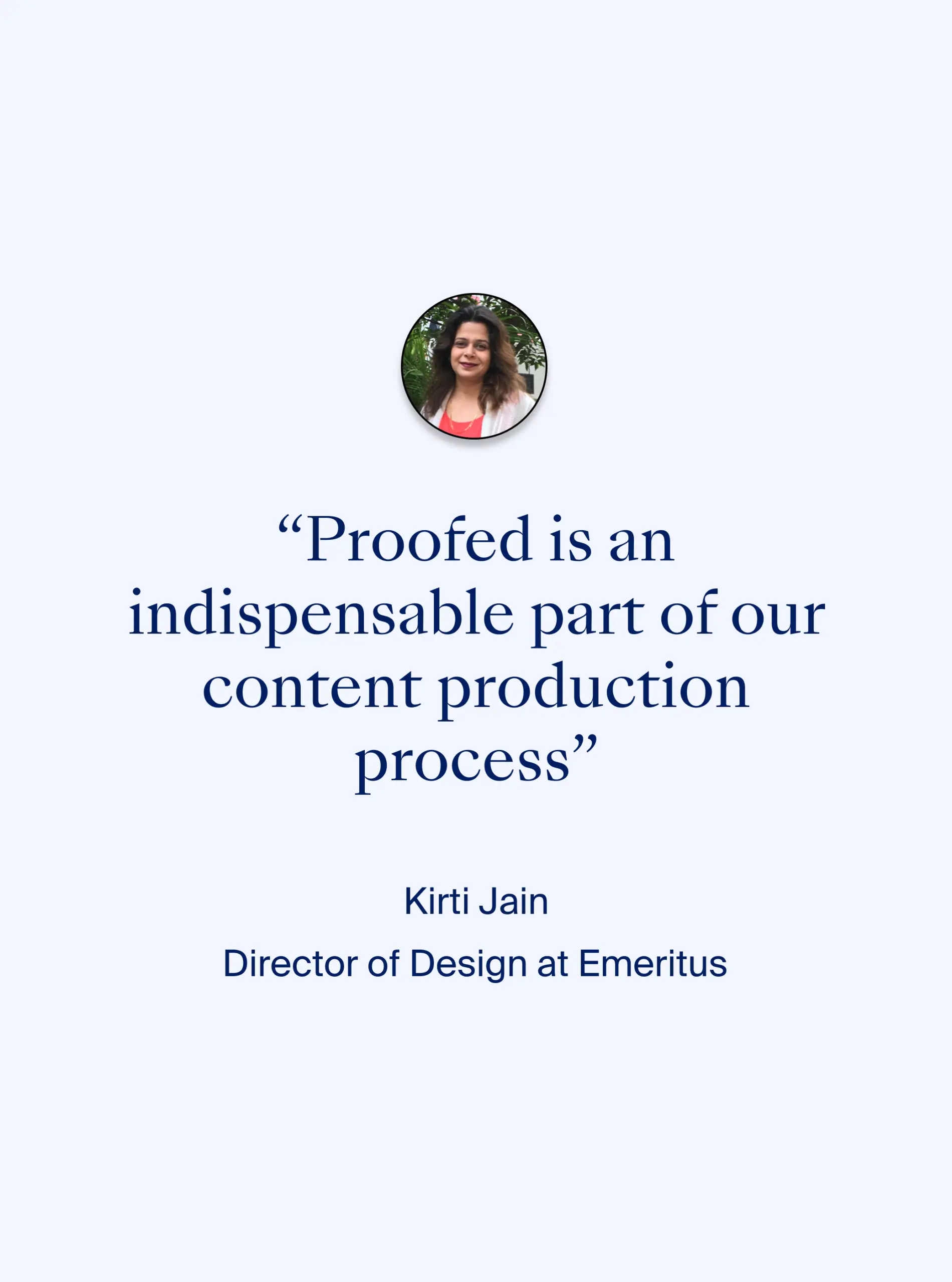Proper time management is an essential skill for any editor to master. With different projects to juggle and deadlines to hit, knowing how to stay organized and focused is the key to staying on top of your workflow.
However, we know it’s often easier said than done, which is why we asked our editing experts how they go about managing their time and avoiding distractions while they work. If you often find yourself racing against the clock, these tips and tricks should help.
Use the Pomodoro Technique
I use the Pomodoro Technique, working for 25 minutes at a time with a five-minute break in between. Also, when the document has a 24-hour deadline, I start it the day before, so that, the next day, part of the work is already done. – Anonymous
Get to Know Your Hourly Word Count
Keep track of how long documents take you to edit, and become aware of your hourly word count, so you can plan for how long a document should take you. And always give yourself extra time just in case. – Sarah C.
Less Is More
I think it is most important to realize that nothing ever goes as smoothly and quickly as you think it will, so it is best not to take as much work as you feel you can handle. Instead, take less than you think you can do, and then you can add more work if things go smoothly.
In terms of planning my time, if I have several things on the go, I keep a spreadsheet of all the work I am busy with. I will put a daily goal for each item and tick them off as I go.
If I have one large document, I always split it into daily sections, with the first day being a small section, the next few days being larger sections, and the last two days being smaller sections. A lot is going on in my house for much of the day, so to maintain concentration, it is best to work in short, focused sections. I try not to sit staring at the screen for more than an hour at a time. Instead, I stretch, chat with kids, exercise, do some chores, have a snack, or get some coffee now and again for variety. This helps me focus when I return to my computer. Unfortunately, it is sometimes more challenging to focus than at other times, so the second pass through every document is vital (preferably when I am feeling fresh) – I can often see where I have been distracted, and I have the opportunity to fix any issues then. – Hannah VDW.
Get to Know Your Pace
By now, I’m familiar with my general pace, so I know how much work I can take on to meet all my deadlines. At the beginning, I tended to be cautious not to say yes to too many projects at the same time because it could get overwhelming ‒ even the mere knowledge that I had to juggle more than one deadline. Taking short breaks between projects or during longer projects helps me maintain my concentration. I usually step away from my desk and simply walk around a little or spend some time with my dog. – Dora G.
Plan Accordingly
I’ll gauge how long a document will probably take me to complete when I open it, and this helps me schedule breaks and organize my time.
I’ve found that listening to calming background music compilations can really help me concentrate, especially if I’m working in a public place. – Dan T.
Find Your Optimal Time of Day
I can focus best first thing in the morning, so I try to complete the hardest editing tasks then. – Debbie N.
Break It Down Into Stages
I look at the overall requirements for the doc and take small breaks after completing different stages. Taking small breaks to grab more coffee or tea, or to stretch, have become important to keep my eyes fresh. – Anonymous
Cycle Through Projects
I tend to break things up when possible. If I can work on multiple projects that are very different from each other, I can be productive for longer periods of time by cycling through them. It makes changing tasks feel like a break. I also have a calendar where I track my assignments, appointments, and travel all in one place. I can see what I have outside of work and keep track of where I’m at financially for the month in one glance. – Alana L.
Allow for Buffer Time
I always allow a lot of extra time when deciding whether to take on documents – you never know what might happen that could cause delays and, in turn, stress (which is not good for editing). I also try to take regular breaks in order to regenerate my concentration levels. – Lucy L.
Get Started ASAP
I always start working on a document as quickly as possible after I accept it, as you never know how long the document will take or how many breaks you’re going to need. I prefer working in the mornings, as that’s when I’m able to concentrate better. – Mel L.
Structure Your Day
I like organizing my workday into smaller chunks, usually based on when I eat meals and when I take tea breaks. This helps a long day feel much more manageable and ensures that I refresh myself every couple of hours and allow my eyes a little time to look away from the screen.
I also have a system in place with my partner, who also works from home, where we put colored Post-it notes on the top of our screens indicating that we can’t be disturbed during that time. Unfortunately, my cat can’t tell the difference between pink and green Post-it notes (and wouldn’t care even if she could!). – Anonymous
Calculate Your Pace

I take note of the speed I’m currently able to work at (how many words I can edit/review per hour) and plan my workloads accordingly. I try to schedule in an hour or two per day of wiggle room for short breaks or in case an assignment is extra tricky. – Ariel T.
Time Keep With Music
Listening to albums of around one hour at a time helps me to keep taking breaks – which is important. – Anonymous
Prioritize According to Deadline
Essentially, do the work with the nearest deadline first. I’ve found that sprinting through a predefined chunk and then taking a short break before the next sprint is actually quicker than treating the whole piece as a marathon. – Jordan B.
Take Active Breaks
I take a break every 5–10 pages, check what I’ve done so far, and make a brew or let the dog out. I always make sure to have a break and do something outside before I do the final check of a document so I can look at it again with fresh eyes. I always make sure I have more time available than I need in case something crops up. – Cathy P.
Organize Your Process
Google Calendar is my best friend, and I also have a cork board with Post-it notes that have important tasks to do. – Erin B.
Have Set Working Hours
I work fairly regular hours (although there is room for flexibility). That way, I know when I’m supposed to be working. If I feel my attention flagging, I get up and do something (often a good time for a water break!). Then I get back to it. – Carol W.
Manage Your Screen Time
My main focus is to take regular breaks (to move my body and rest my eyes). I use MetaMe to track the time I spend on my computer and aim to take a break every 25 minutes of screen time. I also like to break down editing a document into stages so that, once I complete a stage, I take a longer break and gear myself up for the next stage. – Darcy C.
Predetermine How Long Each Project Will Take
I’ll gauge how long a document will probably take me to complete when I open it, and this helps me schedule breaks and organize my time.
I’ve found that listening to calming background music compilations can really help me concentrate, especially if I’m working in a public place. – Dan T.
And Finally, the Ultimate Time Hack
Turning off phone alerts. – Elizabeth M.
